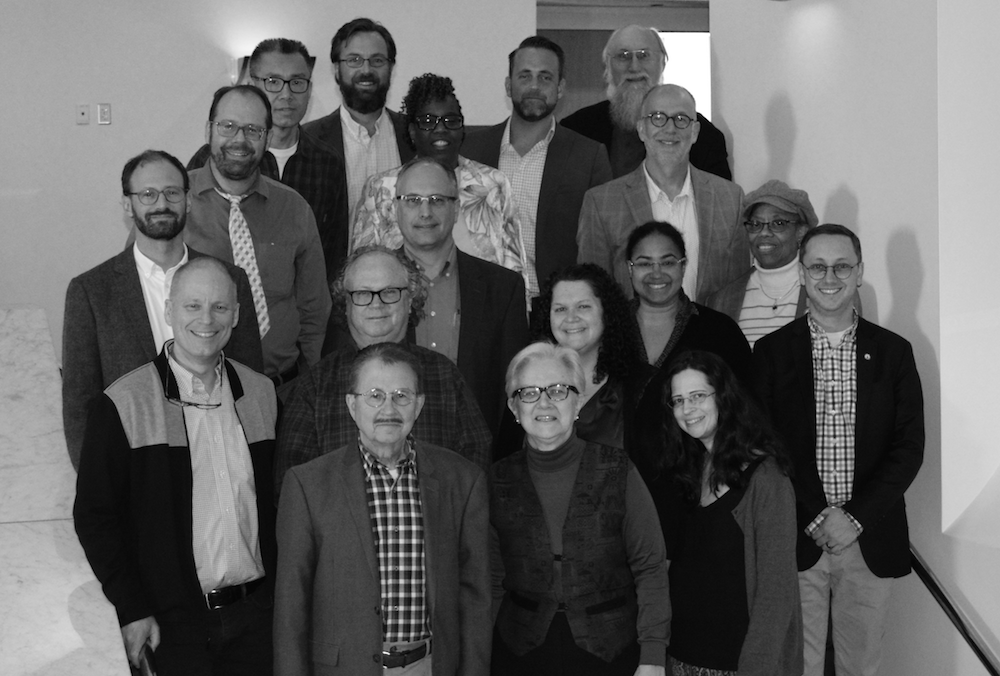Next academic year, Wartburg Seminary will embark on a yearlong project to integrate the sciences into its masters curriculum. Through the “Science, Technology, and Being Human” project, the Seminary will create new opportunities for faculty and students to engage at the intersection of science and religion. The project will seek the wisdom of the scientific community as the Seminary embraces technology in new ways.
Wartburg Seminary is one of nine theological schools in the United States and Canada recently awarded a grant by the American Association for the Advancement of Science (AAAS) as a part of the Dialogue on Science, Ethics, and Religion’s Science for Seminaries Project. “A credible interpretation of Christian faith in our time means integrating consensus findings from the sciences into our witness,” says Craig L. Nessan, Academic Dean and Professor of Contextual Theology & Ethics. “This AAAS grant lends support to the faculty of WTS to equip church leaders to be conversant with science by incorporating it into their teaching and to equip our graduates to engage more capably the urgent ethical issues in our society.”
Grant initiatives kicked off this past April with Dean Nessan and Tim Snyder, Director of Digital Teaching & Learning and Instructor of Practical Theology, traveling to the AAAS headquarters in Washington, DC to meet leaders from other seminaries and learn more about the public engagement work of the AAAS. This summer, project faculty will gather together with advisors from other seminaries around the United States and local scientists to develop yearlong grant initiatives. Forefront science will also be incorporated into core courses of the masters curriculum, and WTS will be hosting community events throughout the year that will encourage informed dialogue about the intersection of science and religion.
Snyder, who will serve this coming year as project leader for the grant, is excited about the opportunity to collaborate with theologians and scientists. “Through this grant we have a unique opportunity to partner with thought leaders from around the country. Over the next year we will invite over a dozen scholars, theologians and scientists to come and engage the Seminary community,” says Snyder.
In 2016, the Seminary launched a new curriculum with innovative uses of digital learning to facilitate the Collaborative Learning program and the revised Distributed Learning program. The grant’s yearlong theme will provide an opportunity to reflect theologically on the possibilities and limits of technology for theological education and the wider church.
For more information, contact Tim Snyder, AAAS Project Leader, at tsnyder@wartburgseminary.edu.
About Wartburg Theological Seminary
Founded in 1853, Wartburg Theological Seminary is a seminary of the Evangelical Lutheran Church in America offering residential and distance theological education through its masters program and through its Theological Education for Emerging Ministries (TEEM) program. The Seminary is accredited by the Association of Theological Schools and the Higher Learning Commission.
About the American Association for the Advancement of Science
The American Association for the Advancement of Science (AAAS) is the world’s largest general scientific society and publisher of the Science family of journals. AAAS was founded in 1848 and includes 261 affiliated societies and academies of science, serving millions of individuals. Science has the largest paid circulation of any peer-reviewed general science journal in the world, with an estimated total readership of 1 million. The nonprofit AAAS is open to all and fulfills its mission to “advance science and serve society” through initiatives in science policy, international programs, science education, public engagement, and more. Building upon its mission, AAAS established the Dialogue on Science, Ethics, and Religion (DoSER) program in 1995 to facilitate communication between scientific and religious communities. For the latest information and news about AAAS DoSER and the Science for Seminaries Project, visit AAAS.org/DoSER and ScienceforSeminaries.org.
